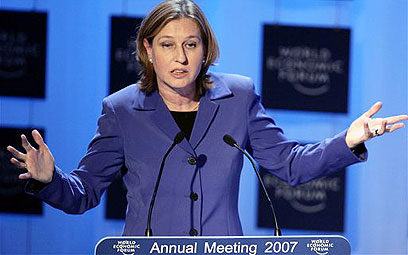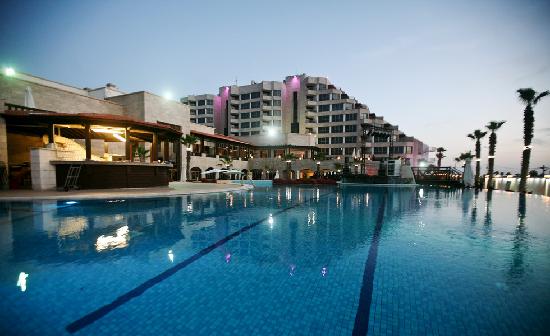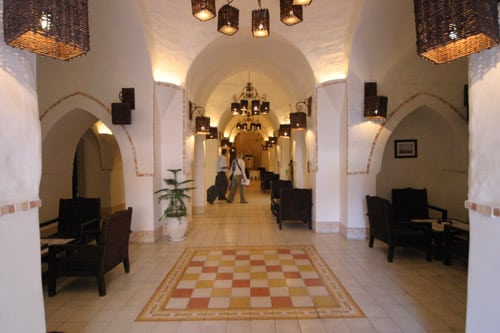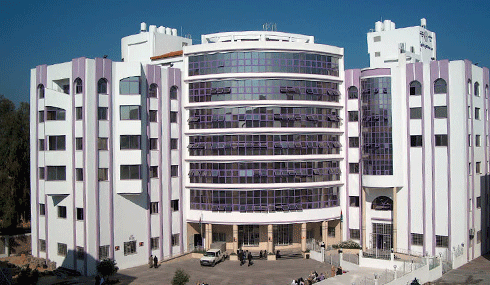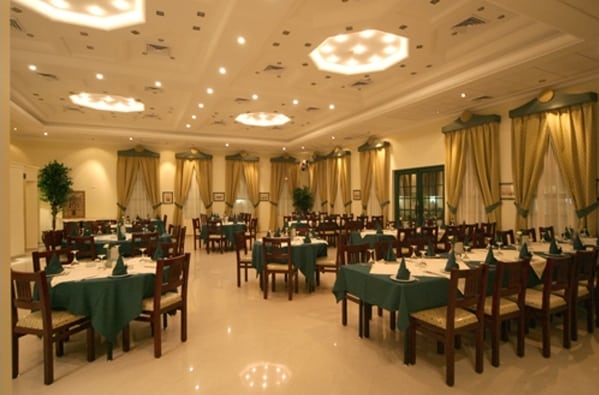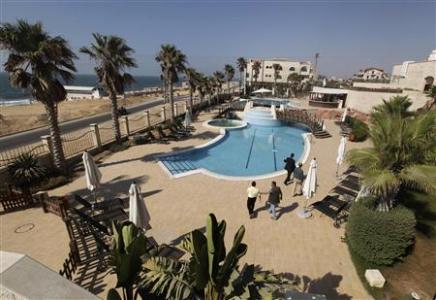MontyB
All-Blacks Supporter
Thomas L. Friedman: The Third Intifada is underway
February 9, 2014 12:00 AM
By Thomas L. Friedman
RAMALLAH, West Bank
For a while now I’ve wondered why there’s been no Third Intifada. That is, no third Palestinian uprising in the West Bank, the first of which helped to spur the Oslo peace process and the second of which — with more live ammunition from the Israeli side and suicide bombings from the Palestinian side — led to the breakdown of Oslo.
You get many explanations from Palestinians: They’re too poor, too divided, too tired or they realize these uprisings, in the end, did them more harm than good, especially the second one. But being here, it’s obvious that a Third Intifada is underway. It’s the one that Israel always feared most — not an intifada with stones or suicide bombers, but one propelled by nonviolent resistance and economic boycott.
But this Third Intifada isn’t really led by Palestinians in Ramallah. It’s led by the European Union in Brussels and other opponents of the Israeli occupation of the West Bank across the globe. Regardless of origin, though, it’s becoming a real source of leverage for the Palestinians in their negotiations with Israel.
Secretary of State John Kerry was recently denounced by Israeli leaders for warning publicly that the boycott and campaign to delegitimize Israel will only get stronger if current peace talks fail. But Mr. Kerry is right.
Israeli Finance Minister Yair Lapid told Israel Army Radio on Monday that if no two-state solution is reached with the Palestinians, “it will hit the pocket of every Israeli.”
Israel’s economy depends on technology and agricultural exports to Europe and on European investments in its high-tech industries. According to Mr. Lapid, even a limited boycott that curbed Israeli exports to Europe by 20 percent would cost Israel more than $5 billion a year and thousands of jobs. That’s why he added: “Israel won’t conduct its policy based on threats. But to pretend that the threats don’t exist, or that they’re not serious, or it’s not a process happening in front of us, is also not serious.”
Just recently, the Israeli daily Haaretz reported that the Netherlands’ largest pension fund management company, PGGM, “has decided to withdraw all its investments from Israel’s five largest banks because they have branches in the West Bank and/or are involved in financing construction in the settlements.” And The Jerusalem Post reported that Danske Bank, Denmark’s largest bank, has decided to boycott Israel’s Bank Hapoalim for “legal and ethical” reasons related to its operating in the settlements.
This Third Intifada, in my view, has much more potential to have a long-term effect because, unlike the first two, it is coinciding with the offer from the Palestinian president, Mahmoud Abbas, as part of a two-state deal, to let Israeli troops stay for five years as they make a phased withdrawal from the West Bank to the 1967 lines and to then let U.S.-led NATO forces fill in any strategic void to reassure Israel.
To put it differently, the Third Intifada is based on a strategy of making Israelis feel strategically secure but morally insecure.
The first two intifadas failed in the end because they never included a map of a two-state solution and security arrangements. They were more raw outbursts of rage against the occupation.
You cannot move the Israeli silent majority when you make them feel strategically insecure and morally secure, which is what Hamas did with its lunatic shelling of Israel after it withdrew from Gaza; few Israelis were bothered by pummeling them back. President Anwar Sadat of Egypt, though, got all he wanted by making Israelis feel strategically secure but morally insecure about holding any of his land.
This Third Intifada is also gaining strength because of the passing from the scene of two key leaders: Nelson Mandela and former President Mahmoud Ahmadinejad of Iran.
For Israel, Mr. Ahmadinejad was the gift who kept on giving: an Iranian president who denied the Holocaust and rebuffed global efforts to get Iran to stop building a nuclear bomb. He was hard to love. The replacement of Mr. Ahmadinejad by the negotiation-friendly, Holocaust-recognizing Hassan Rouhani is much more problematic for Israel.
But my gut also tells me that the death of Mandela has left many of his followers looking for ways to honor his legacy and carry on his work. On some college campuses, they’ve found it: boycotting Israel until it ends the West Bank occupation.
Israelis are right to suspect some boycotters of using this cause as a cover for anti-Semitism, given how Israel’s misdeeds are singled out. But that doesn’t mean that implanting 350,000 settlers in the West Bank and turning a blind eye to dozens of wildcat settlements — that even Israel deems “illegal” — is smart or in Israel’s interest.
If Israel really wanted to slow down the boycott campaign, it would declare that as long as John Kerry is trying to forge a deal, and there is hope for success, Israel will freeze all settlement activity to give peace its best chance.
Unlikely, I know. But one thing I know for sure: This incessant trashing of Mr. Kerry by Israeli ministers, and their demand that Palestinians halt all “incitement” — but that Israel be free to keep building settlements in their face — is not winning Israel friends in Europe or America. It is only energizing the boycotters.
Thomas L. Friedman is a syndicated columnist for The New York Times. David M. Shribman’s column this week, on the death of Joan Mondale, was published Wednesday. You can read it online at post-gazette.com.
Read more: http://www.post-gazette.com/opinion...s-underway/stories/201402090014#ixzz2sniCHBlj
February 9, 2014 12:00 AM
By Thomas L. Friedman
RAMALLAH, West Bank
For a while now I’ve wondered why there’s been no Third Intifada. That is, no third Palestinian uprising in the West Bank, the first of which helped to spur the Oslo peace process and the second of which — with more live ammunition from the Israeli side and suicide bombings from the Palestinian side — led to the breakdown of Oslo.
You get many explanations from Palestinians: They’re too poor, too divided, too tired or they realize these uprisings, in the end, did them more harm than good, especially the second one. But being here, it’s obvious that a Third Intifada is underway. It’s the one that Israel always feared most — not an intifada with stones or suicide bombers, but one propelled by nonviolent resistance and economic boycott.
But this Third Intifada isn’t really led by Palestinians in Ramallah. It’s led by the European Union in Brussels and other opponents of the Israeli occupation of the West Bank across the globe. Regardless of origin, though, it’s becoming a real source of leverage for the Palestinians in their negotiations with Israel.
Secretary of State John Kerry was recently denounced by Israeli leaders for warning publicly that the boycott and campaign to delegitimize Israel will only get stronger if current peace talks fail. But Mr. Kerry is right.
Israeli Finance Minister Yair Lapid told Israel Army Radio on Monday that if no two-state solution is reached with the Palestinians, “it will hit the pocket of every Israeli.”
Israel’s economy depends on technology and agricultural exports to Europe and on European investments in its high-tech industries. According to Mr. Lapid, even a limited boycott that curbed Israeli exports to Europe by 20 percent would cost Israel more than $5 billion a year and thousands of jobs. That’s why he added: “Israel won’t conduct its policy based on threats. But to pretend that the threats don’t exist, or that they’re not serious, or it’s not a process happening in front of us, is also not serious.”
Just recently, the Israeli daily Haaretz reported that the Netherlands’ largest pension fund management company, PGGM, “has decided to withdraw all its investments from Israel’s five largest banks because they have branches in the West Bank and/or are involved in financing construction in the settlements.” And The Jerusalem Post reported that Danske Bank, Denmark’s largest bank, has decided to boycott Israel’s Bank Hapoalim for “legal and ethical” reasons related to its operating in the settlements.
This Third Intifada, in my view, has much more potential to have a long-term effect because, unlike the first two, it is coinciding with the offer from the Palestinian president, Mahmoud Abbas, as part of a two-state deal, to let Israeli troops stay for five years as they make a phased withdrawal from the West Bank to the 1967 lines and to then let U.S.-led NATO forces fill in any strategic void to reassure Israel.
To put it differently, the Third Intifada is based on a strategy of making Israelis feel strategically secure but morally insecure.
The first two intifadas failed in the end because they never included a map of a two-state solution and security arrangements. They were more raw outbursts of rage against the occupation.
You cannot move the Israeli silent majority when you make them feel strategically insecure and morally secure, which is what Hamas did with its lunatic shelling of Israel after it withdrew from Gaza; few Israelis were bothered by pummeling them back. President Anwar Sadat of Egypt, though, got all he wanted by making Israelis feel strategically secure but morally insecure about holding any of his land.
This Third Intifada is also gaining strength because of the passing from the scene of two key leaders: Nelson Mandela and former President Mahmoud Ahmadinejad of Iran.
For Israel, Mr. Ahmadinejad was the gift who kept on giving: an Iranian president who denied the Holocaust and rebuffed global efforts to get Iran to stop building a nuclear bomb. He was hard to love. The replacement of Mr. Ahmadinejad by the negotiation-friendly, Holocaust-recognizing Hassan Rouhani is much more problematic for Israel.
But my gut also tells me that the death of Mandela has left many of his followers looking for ways to honor his legacy and carry on his work. On some college campuses, they’ve found it: boycotting Israel until it ends the West Bank occupation.
Israelis are right to suspect some boycotters of using this cause as a cover for anti-Semitism, given how Israel’s misdeeds are singled out. But that doesn’t mean that implanting 350,000 settlers in the West Bank and turning a blind eye to dozens of wildcat settlements — that even Israel deems “illegal” — is smart or in Israel’s interest.
If Israel really wanted to slow down the boycott campaign, it would declare that as long as John Kerry is trying to forge a deal, and there is hope for success, Israel will freeze all settlement activity to give peace its best chance.
Unlikely, I know. But one thing I know for sure: This incessant trashing of Mr. Kerry by Israeli ministers, and their demand that Palestinians halt all “incitement” — but that Israel be free to keep building settlements in their face — is not winning Israel friends in Europe or America. It is only energizing the boycotters.
Thomas L. Friedman is a syndicated columnist for The New York Times. David M. Shribman’s column this week, on the death of Joan Mondale, was published Wednesday. You can read it online at post-gazette.com.
Read more: http://www.post-gazette.com/opinion...s-underway/stories/201402090014#ixzz2sniCHBlj


